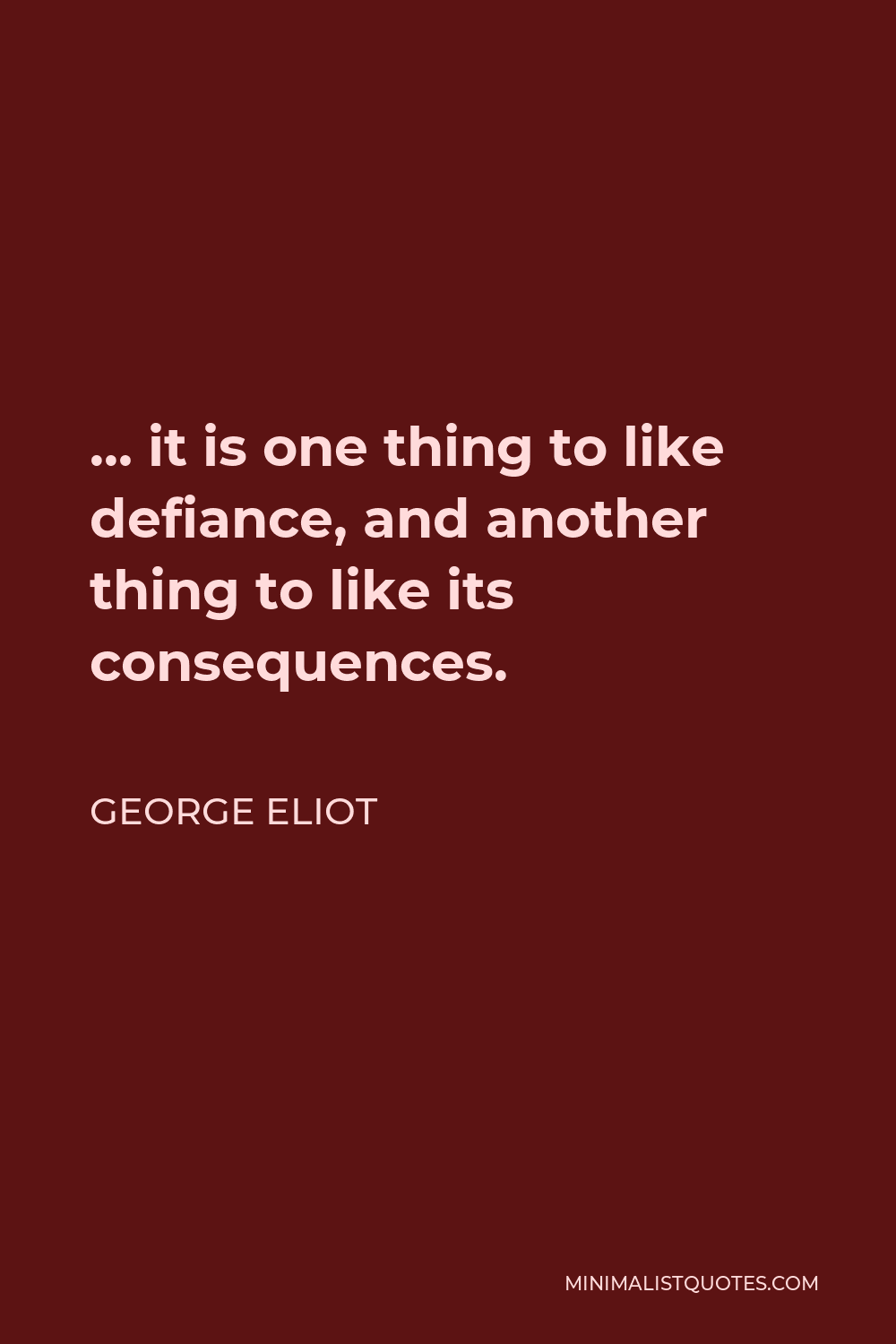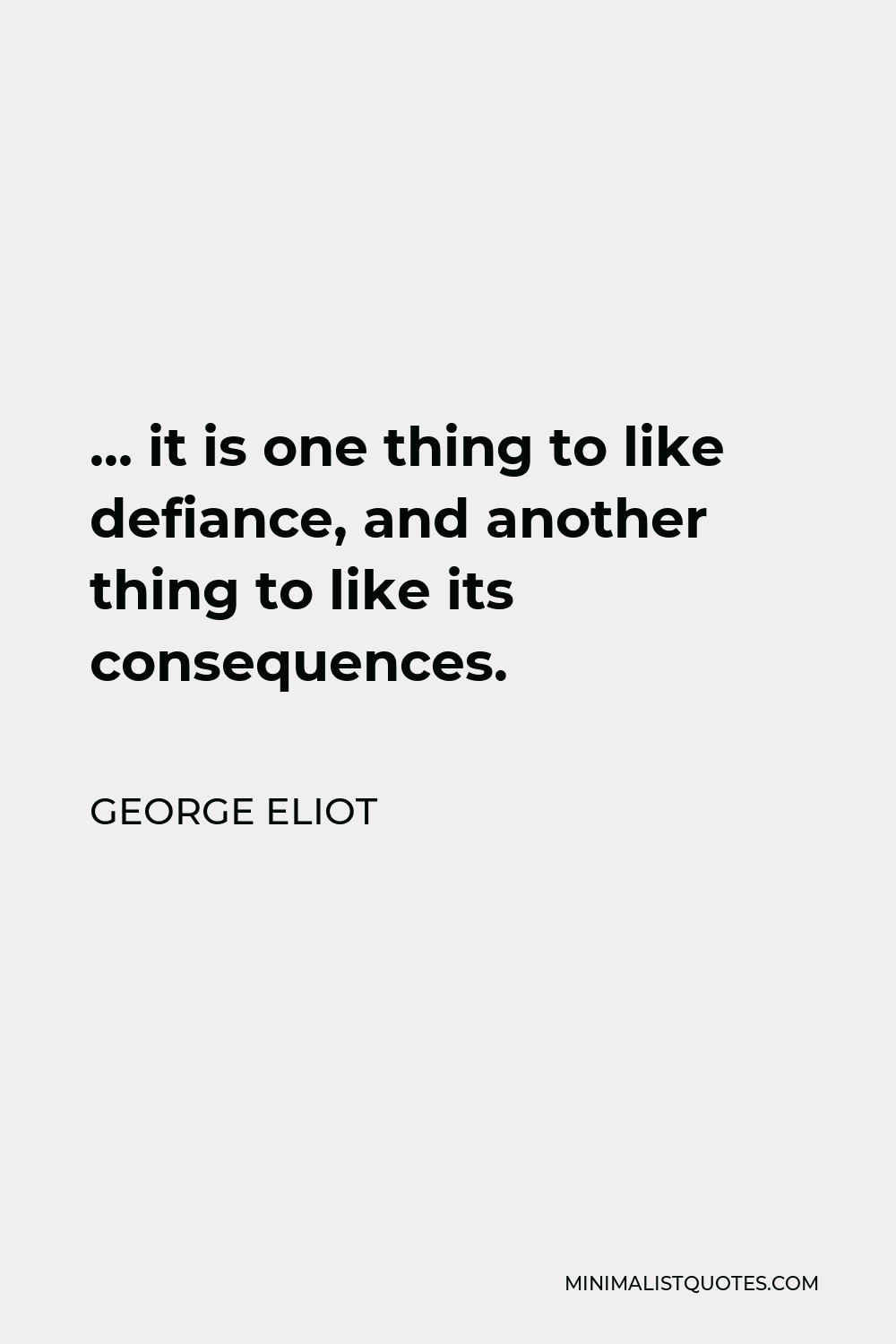After all, the true seeing is within.
GEORGE ELIOT… it is one thing to like defiance, and another thing to like its consequences.
More George Eliot Quotes
-





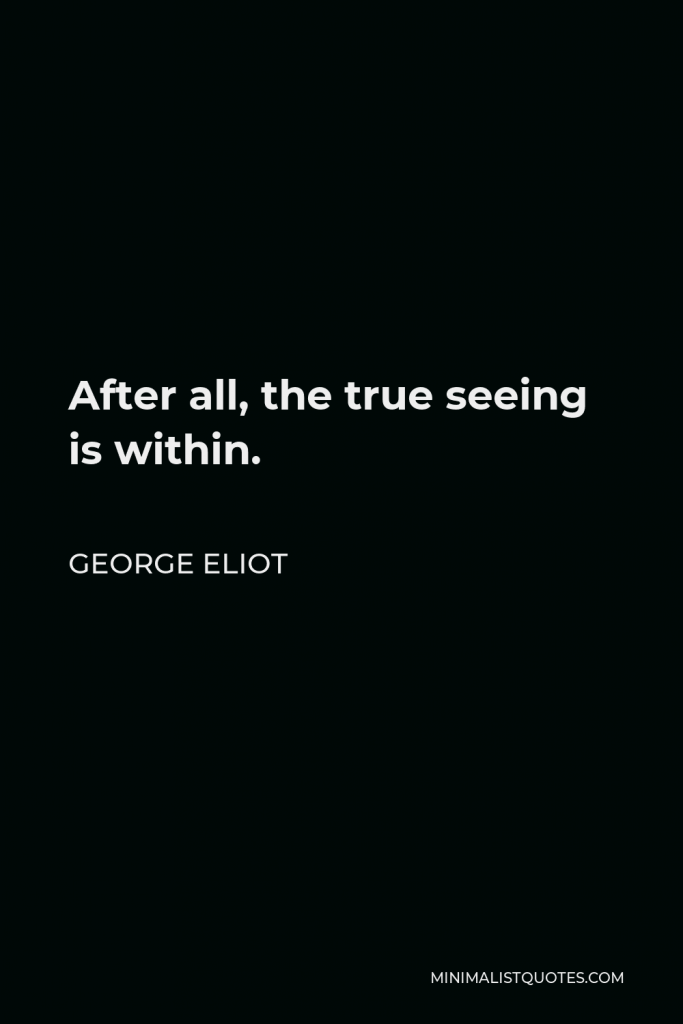

-






Justice is like the kingdom of God–it is not without us as a fact, it is within us as a great yearning.
GEORGE ELIOT -







When death, the great reconciler, has come, it is never our tenderness that we repent of, but our severity.
GEORGE ELIOT -







The golden moments in the stream of life rush past us, and we see nothing but sand; the angels come to visit us, and we only know them when they are gone.
GEORGE ELIOT -







I carry my unwritten poems in cipher on my face!
GEORGE ELIOT -






Adventure is not outside man; it is within.
GEORGE ELIOT -





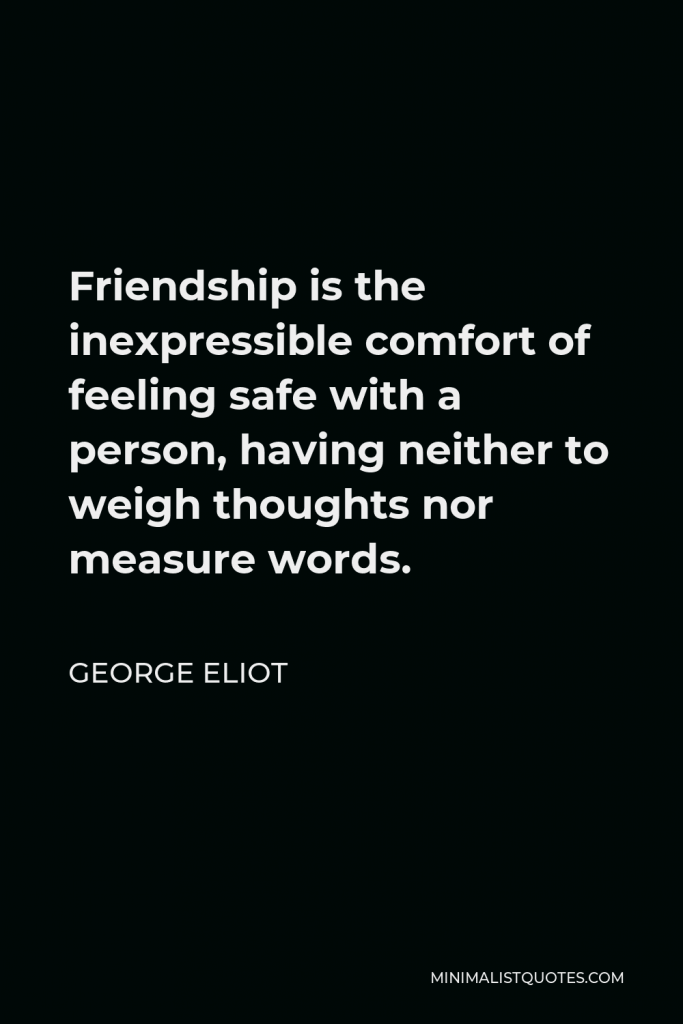

Friendship is the inexpressible comfort of feeling safe with a person, having neither to weigh thoughts nor measure words.
GEORGE ELIOT -





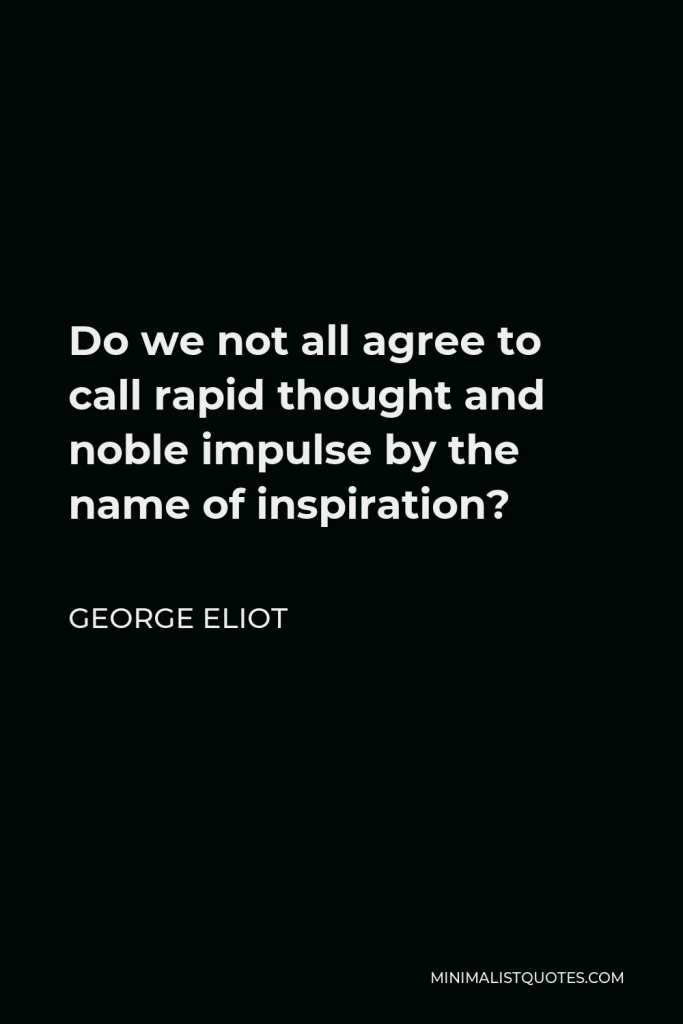

Do we not all agree to call rapid thought and noble impulse by the name of inspiration?
GEORGE ELIOT -







Animals are such agreeable friends – they ask no questions; they pass no criticisms.
GEORGE ELIOT -





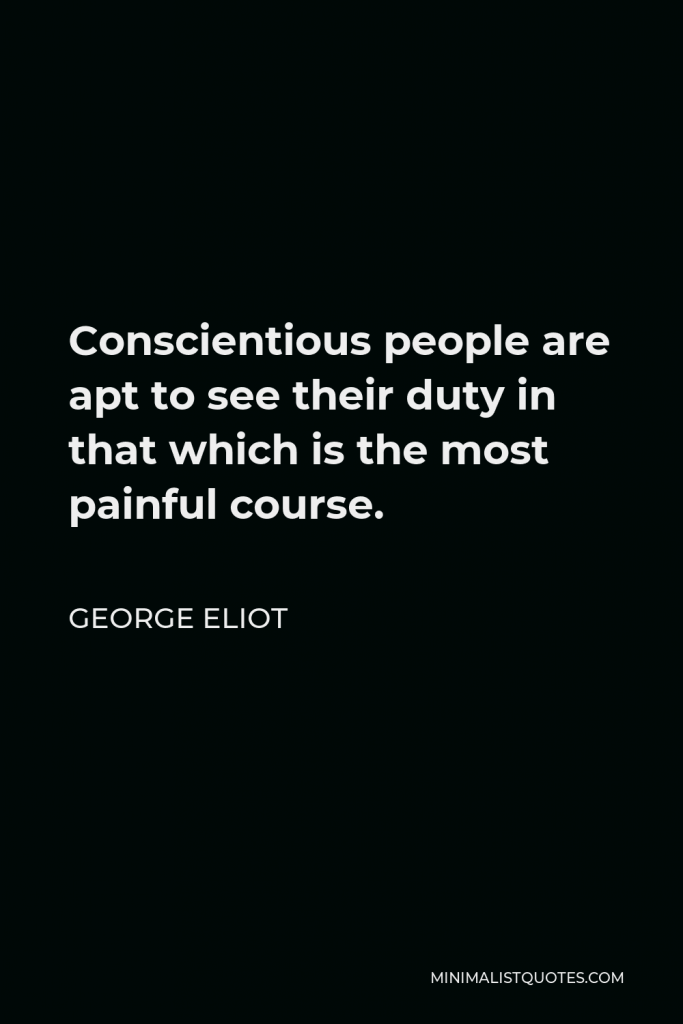

Conscientious people are apt to see their duty in that which is the most painful course.
GEORGE ELIOT -





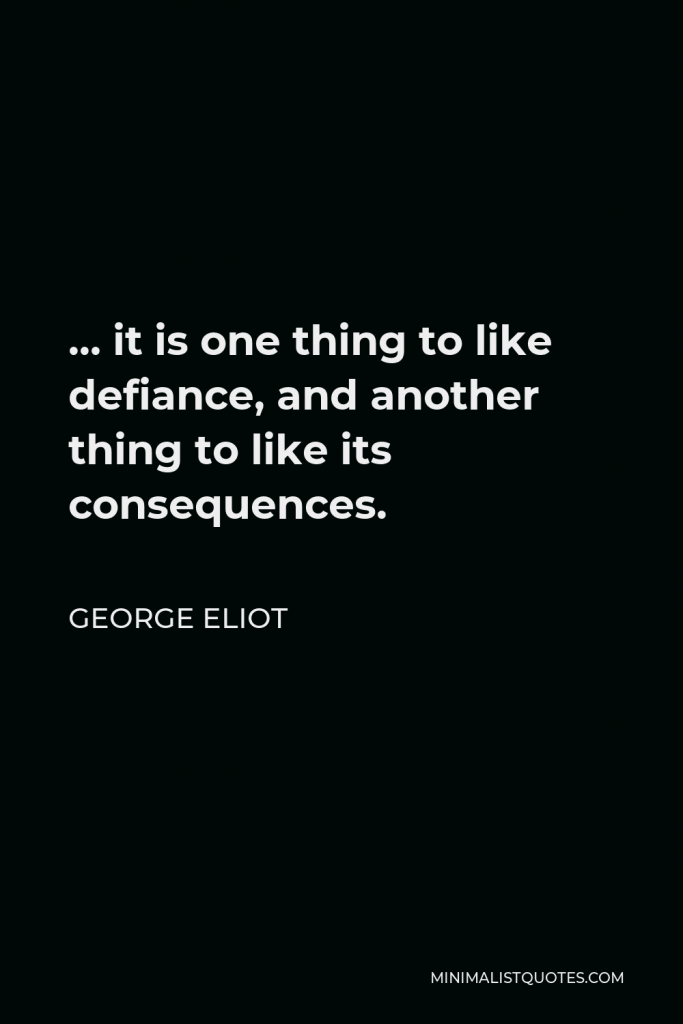

… it is one thing to like defiance, and another thing to like its consequences.
GEORGE ELIOT -







These gems have life in them: their colors speak, say what words fail of.
GEORGE ELIOT -





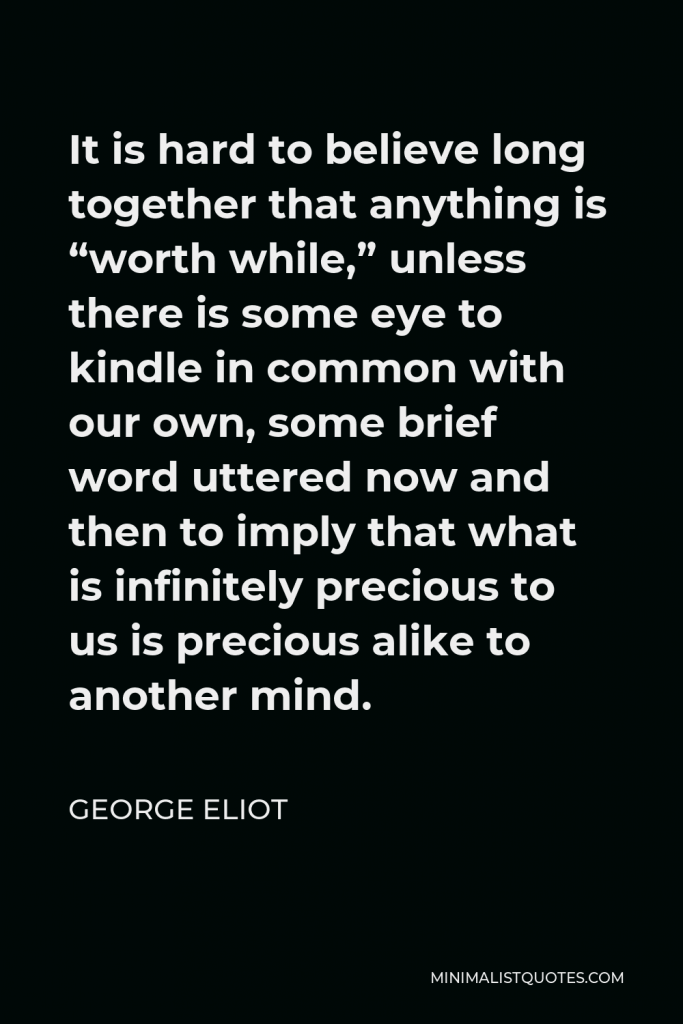

It is hard to believe long together that anything is “worth while,” unless there is some eye to kindle in common with our own, some brief word uttered now and then to imply that what is infinitely precious to us is precious alike to another mind.
GEORGE ELIOT -







The finest language is mostly made up of simple unimposing words.
GEORGE ELIOT -





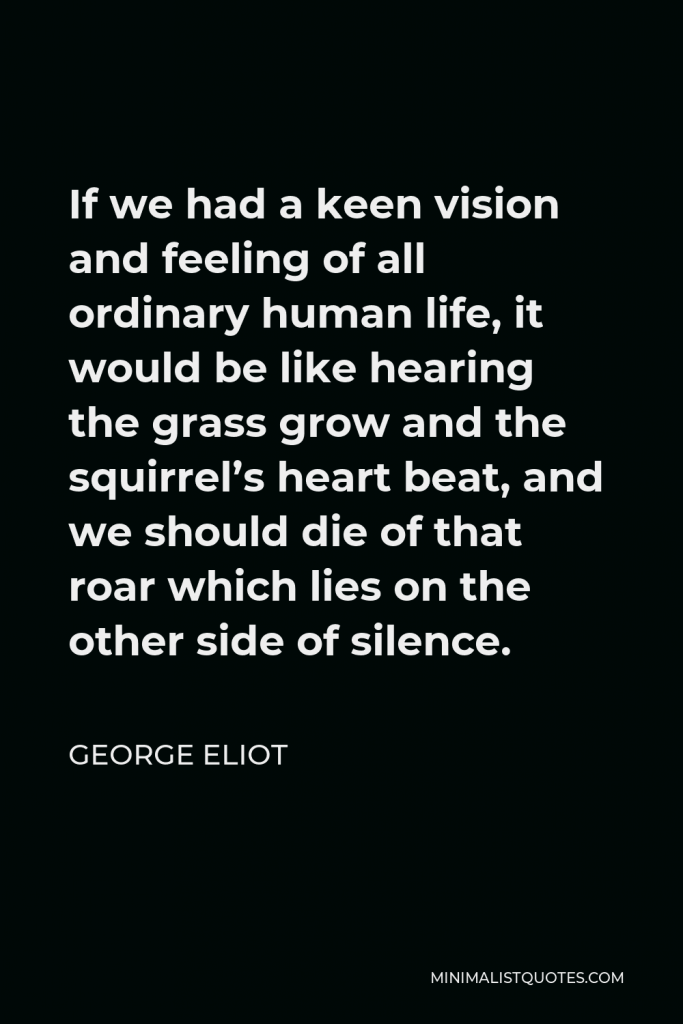

If we had a keen vision and feeling of all ordinary human life, it would be like hearing the grass grow and the squirrel’s heart beat, and we should die of that roar which lies on the other side of silence.
GEORGE ELIOT -







Marriage must be a relation either of sympathy or of conquest.
GEORGE ELIOT



